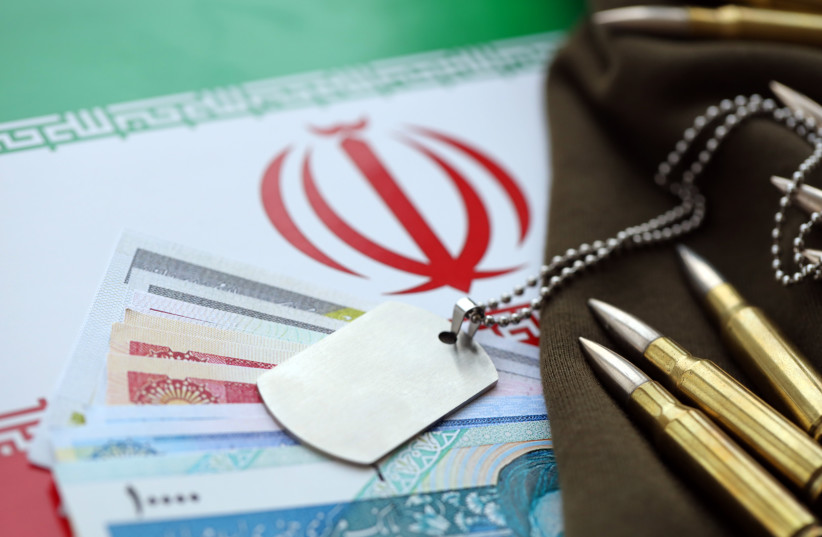A cold revenge: How Iran baited Israel on October 7
Maariv held an in-depth conversation with Prof. Boaz Ganor, Reichman University president and founder of the International Institute for Counter-Terrorism. We discussed today’s pressing issues, Iran’s role in the Israel-Hamas War, and developments in the Middle East.
Prof. Ganor, one of the pioneers of terrorism research in academia, is a full-time professor and previously served as dean of the Lauder School of Government, Diplomacy, and Strategy.
Regarding the initiative for the war, Prof. Ganor has a different opinion than many of his friends in the fields of security and academia. He claimed that “the [Israel-Hamas War] was planned, prepared, financed, and initiated by Iran.”
His explanation was based on three reasons: “The first reason is a reason for revenge. The Iranians like to say that revenge happened, and they have a lot to take revenge for – for scientists who were killed, fires and damage to bases and infrastructure facilities, cyber attacks, and so on.”
According to Prof. Ganor, the second reason was the strategic timing: “The Iranians wanted the world’s attention to turn from Iran to another arena. They are only one step away from obtaining a military nuclear capability, and the most suitable for them would be for everyone to be busy elsewhere in the world.”
The third and most important reason was the fear of normalization between Israel and Saudi Arabia: “They knew that such normalization would lead to the establishment of a regional military alliance that would stand against Iran. This is the biggest nightmare for them and the strategic threat to Iran that they really wanted to prevent.”

Prof. Ganor said he believed that the Iranians carried out careful and calculated planning: “They came to the conclusion that Israel should be dragged into the war and not into another operation in Gaza. But it was clear to them that this war should have two conditions: first, there will be no distinct Iranian signature; second, it will be difficult and long but limited.”
The choice of their Palestinian proxy was not accidental, he explained: “They chose the weaker Palestinian arm, but an arm capable of doing a great deal of damage to the State of Israel. In addition, they built a pre-prepared denial system that would distance them from the event.”
He emphasized that Iran’s signal that it was not involved in the attack was a premeditated move: “This system started with Ismail Haniyeh’s announcement after the massacre where he said that Hezbollah and Iran were not involved: ‘We didn’t tell them, and we didn’t tell them, so we don’t expect them to be involved.’ Afterward, in the sermon on Friday, Nasrallah continued the same line and said that Hamas did not inform them and that Iran was not involved. Khamenei himself later said that Hamas did not inform them and that they were not involved in this matter.”
Israel took the Iranian bait
Prof. Ganor explained in detail that the Iranians anticipated Israel’s response: “Just as we responded. We did not surprise them with any move. They expected us to respond in exactly this way – the Air Force, entering Gaza – and hoped that it would degenerate into a long war of attrition.”
According to him, Israel should have taken a different approach: “What should have been done was not to deal with the tactical threat to the State of Israel, Hamas, but the strategic threat, Hezbollah.”
Prof. Ganor compared the situation to a street war: “Think of a situation where you are walking down the street and a criminal gang attacks you. If you attack the thug, you will not deter the gang’s leader or the powerful [actors]. On the other hand, if you attack [one of] the powerful [actors], you may deter the others. Israel has decided that it is taking care of the one who slapped it in the face and not taking care of the bigger thugs of the region.”
Prof. Boaz Ganor’s words challenge all those involved in fighting terrorism and determining national security policy. He has a comprehensive point of view and requires renewed attention to the situation in the Middle East and the methods of necessary action to ensure Israel’s security.





Comments are closed.